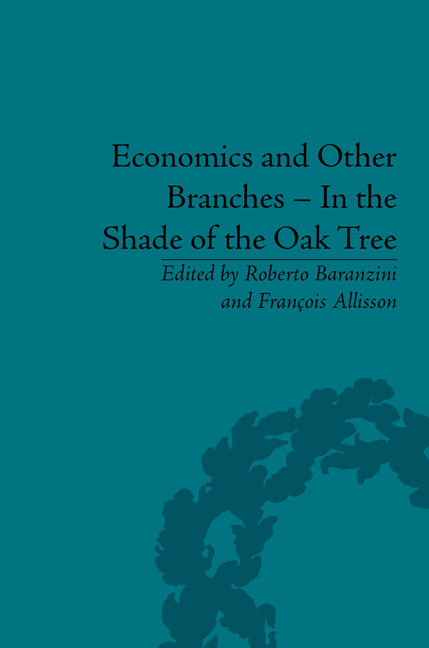Book contents
- Frontmatter
- CONTENTS
- List of Contributors
- List of Figures and Tables
- Introduction
- Pascal Bridel's Bibliography (up to 2013)
- Part I Léon Walras's Economic Thought
- 1 Walras between Holism and Individualism
- 2 The Case against Market Perfection: The Two Bertrands' Objections are One
- 3 Walras, Marx and the Philosophy of History
- 4 Sraff a without Walras
- Part II The Spreading of Thought
- Léon Walras's Reception
- The Lausanne School
- French Matters
- Cambridge UK
- Part III Monetary Theory
- Part IV Methodology
- Part V Economics and Humanities
- Economics and Social Sciences
- Some Insights from Visual Arts
- Part VI Economics and Civil Society
- Notes
- Index
1 - Walras between Holism and Individualism
from Part I - Léon Walras's Economic Thought
- Frontmatter
- CONTENTS
- List of Contributors
- List of Figures and Tables
- Introduction
- Pascal Bridel's Bibliography (up to 2013)
- Part I Léon Walras's Economic Thought
- 1 Walras between Holism and Individualism
- 2 The Case against Market Perfection: The Two Bertrands' Objections are One
- 3 Walras, Marx and the Philosophy of History
- 4 Sraff a without Walras
- Part II The Spreading of Thought
- Léon Walras's Reception
- The Lausanne School
- French Matters
- Cambridge UK
- Part III Monetary Theory
- Part IV Methodology
- Part V Economics and Humanities
- Economics and Social Sciences
- Some Insights from Visual Arts
- Part VI Economics and Civil Society
- Notes
- Index
Summary
When an example is to be found of the way methodological individualism is used in economics, mention is made of the theory of general equilibrium as the canonical example of an individualistic approach to economic phenomena.
The overall equilibrium is based on a representation of society. Society is composed of free and equal individuals. Though equal in rights, these individuals may differ from each other only because they do not have the same tastes or resources. These individuals are supposed to be rational, free and independent of each other (isolated). Socializing these isolated individuals can be done through markets. Exchanges on markets allow individuals to maximize their satisfaction or profit. If there is such a thing as the general equilibrium, it is a situation in which, after trading, each agent obtains the highest satisfaction possible, in light of his or her initial resources. This equilibrium is deemed good for society insofar as it is an optimum. Thus presented, the overall equilibrium is fully compliant with methodological individualism standards: a collective phenomenon, the system of price equilibrium, can be completely accounted for by individuals' behaviours. As noted by Kenneth J. Arrow, economists today have overwhelmingly rallied to methodological individualism: ‘It is a touchstone of accepted economics that all explanations must run in terms of the actions and reactions of individuals’
- Type
- Chapter
- Information
- Economics and Other Branches – In the Shade of the Oak TreeEssays in Honour of Pascal Bridel, pp. 15 - 30Publisher: Pickering & ChattoFirst published in: 2014

